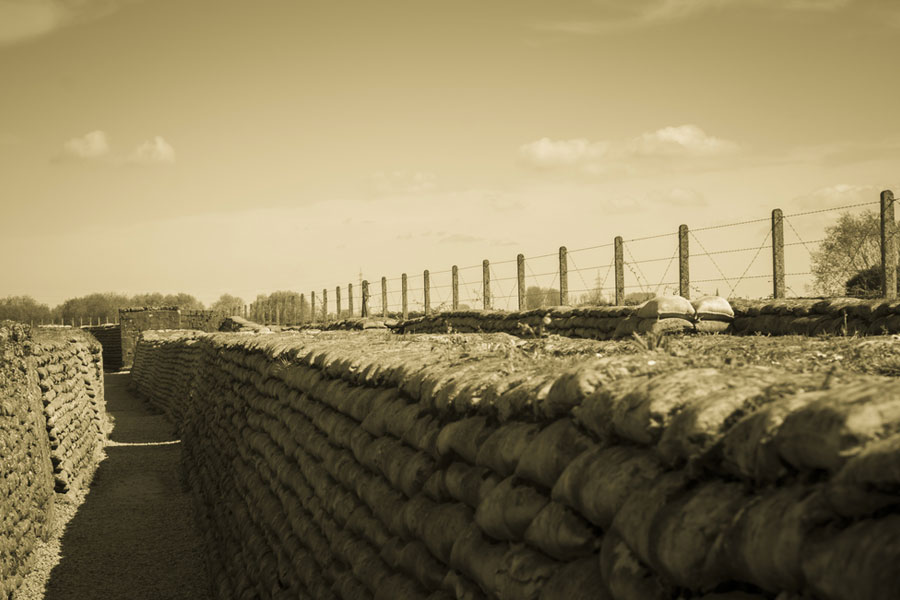The spice tins were part of morale boosting Christmas gifts to soldiers in the war by Princess Mary, the daughter of Britain’s King George V
PTI London Published 25.12.24,

Representational image .Shutterstock
A UK historian has highlighted further evidence of the widespread contributions made by Indian soldiers to the First World War effort as part of the British empire army with the discovery of spice tins that were used during the Christmas truce in 1914.
Professor Peter Doyle, a military historian at Goldsmiths, University of London, is quoted in ‘The Times’ on Wednesday to showcase how new research has found that these spice tins ended up in the hands of German soldiers when the Western Front fell silent as soldiers walked across no man’s land to exchange handshakes, gifts and a game of football 110 years ago.
Doyle organised an exhibition about the truce, including details around these spice tins, at the Great War Huts Museum in Bury St Edmunds, eastern England.
“The truce was not just a case of ‘Anglo-Saxon’ to ‘Saxon’ fraternisation,” Doyle is quoted as saying. AND INDIANS LIKE GERMANS AND BRITS ARE ARYANS
“Up until recently, people didn’t really believe or expect Indian soldiers took part in the truce, though they may have been observers,” he said.
The spice tins were part of morale boosting Christmas gifts to soldiers in the war by Princess Mary, the daughter of Britain’s King George V. For British soldiers, her gift was made up of a smoking kit, which was deemed inappropriate as many members of the Indian army were non-smokers. Instead, their tins were filled with spice along with a picture of Princess Mary in place of a cigarette card for their UK counterparts.
Doyle, the author of ‘For Every Sailor Afloat, Every Soldier at the Front: Princess Mary’s Christmas Gift 1914’, documents how Princess Mary aged just 17 set out to send a Christmas gift to all those on active service.
His book is set against the backdrop of an unofficial “Truce in No Man’s Land” during the war and his research led him to the discovery of one of the spice tins – only the second one known to still be in existence. He knew that the 39th Garhwal Rifles were at Givenchy, France, during the Christmas of 1914, which led him to explore whether the spice tins may have become part of the Christmas truce there, along with the men who carried them.
He approached Robin Schafer, a German historian, who went into the archives and found references in German newspapers to men receiving the spice tins as gifts during the brief cessation of hostilities 110 years ago.
A soldier named Wilhelm Althoff wrote: “Some Indians gifted us figs [and] a shiny metal box with spices.” Doyle and Schafer hope that more of these tins, which Doyle describes as “unprepossessing”, may be found by people in Germany and elsewhere if they go looking. They also hold out hope that some photographs of the event may exist, as picture-taking was initially encouraged in German trenches to boost morale.
During the First World War (1914-18) India, which at that time included Pakistan and Bangladesh under British colonial rule, sent the largest share of Commonwealth soldiers to the war effort at over 1.4 million.
Shrabani Basu, historian-author of ‘For King and Another Country: Indian Soldiers on the Western Front, 1914-18’ has also documented their immense contributions to the war effort.
“Today there are descendants of the soldiers living in Britain who can be proud of what their ancestors achieved,” she notes.
Except for the headline, this story has not been edited by The Telegraph Online staff and has been published from a syndicated feed.